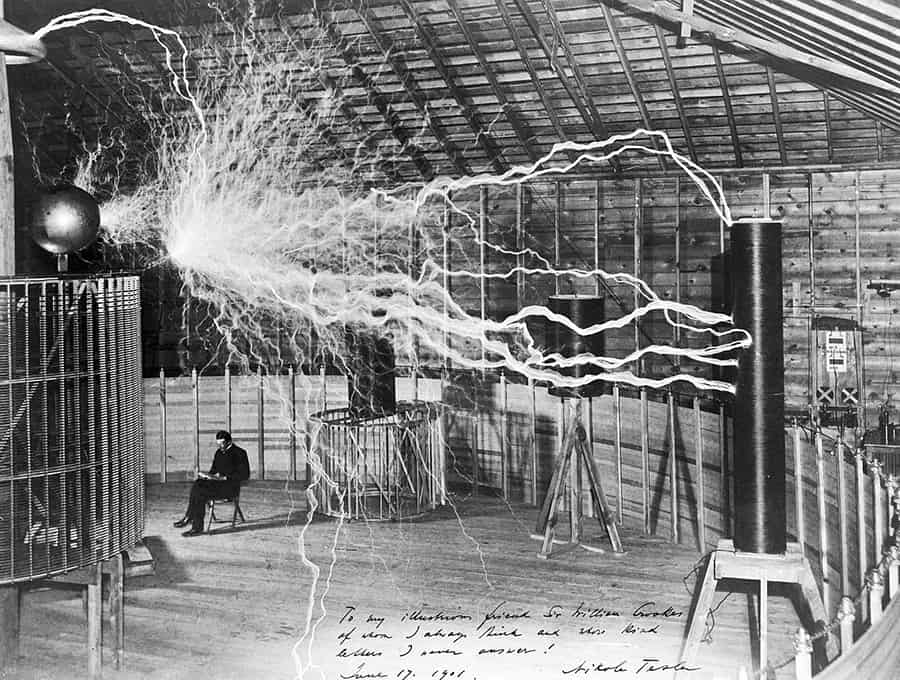Are engineers geniuses? Most aren’t! Just like in any other profession, you’ll find a mix of struggling, average, and genius-level engineers.
But first, let’s break down what “genius” actually means. Google tells us that a genius is someone with “exceptional intellectual or creative power or other natural ability.” So, what does genius look like in the engineering world? Here’s my take:
- Designing groundbreaking inventions nobody’s seen before
- Dreaming up new concepts that revolutionize industries
- Troubleshooting and fixing complex problems solo and on the fly
- Inspiring fellow engineers to take on massive, intricate projects
Now, let’s get to the heart of the matter.
The trailblazing engineers who lead the way
In every field, there’s always a handful of extraordinary folks who rise above the rest. Take the NBA, for instance. It’s home to the world’s best basketball players, but even hardcore fans can’t name every player. Only a select few, like LeBron James, can transform a team into a championship contender. LeBron’s knack for redefining basketball and his insane talent make him a true genius in his field, earning him a spot as a household name.
Well, the same thing goes for engineers, minus the fame, of course. There’s a small group of them that drive their fields forward, using their natural knack for visualizing concepts and connecting the dots. Mix that with a relentless work ethic, and you get genius-level engineers, or what some call 10x engineers.

Important Note: It might seem like these engineers work solo, but they actually have a whole support crew behind them. Sure, progress would stall without their leadership, but every engineer’s contributions count in one way or another.
Imagine a pyramid representing all working engineers. At the peak, you’ve got the genius-level engineers leading the charge and tackling the most daunting challenges. As you travel down the pyramid, the tasks become more routine and repetitive.
In short, levels exist in engineering. No different than in any other profession.
Formal engineering education: the genius filter?

People often say that engineering education sorts the geniuses from the rest. It supposedly weeds out the underperformers, leaving only the brilliant engineers behind. But it’s not that simple—remember, levels exist!
For starters, engineering education could really use a makeover. If you’re not passionate about engineering, you’ll have a tough time at school. I partly blame the education system for this.
Now, let’s get real here: universities aren’t cranking out genius engineers left, right, and center. Back in my college days, I saw plenty of students who struggled big time because they weren’t putting in the work, and the concepts just didn’t click. They were more into other stuff, but hey, they still walked away with that “engineer” title.
In the end, some became average engineers, while others switched careers. The thing is, just because they didn’t excel in engineering doesn’t mean they can’t be geniuses in other fields.
Passion: the key to exceptional engineering
When you’re head-over-heels in love with engineering, you’ll jump out of bed at 5 AM to work on a project. You might even forget to eat because you’re so focused on cracking a problem.
Your persistence is off the charts, too. If you can’t solve a problem, you’ll try it from every possible angle. Giving up just isn’t in your vocabulary.
This kind of dedication leads to mastery in engineering. Sure, some engineers are naturally gifted, but they still have to devote their lives to the field. It’s no wonder that genius engineers are few and far between.
Keep in mind, becoming a creative engineer takes experience—you’re not born an engineering prodigy. You might have some innate qualities that give you an advantage, but most of your creativity comes from experience.
So, if you’re looking to boost your engineering game, check out my tips on engineering creativity and unlock your inner genius!
My experience in the workplace as an engineer
I’ve taught engineering concepts to folks with just a high school diploma. From basic equations to mind-boggling theories, they soaked it all up like sponges. Why? Because they were genuinely passionate about engineering! It’s not always about the institution or the environment. It’s the person that makes the difference.
Now, let me give you another example. I’ve met technicians who can outwit many so-called “real” engineers. Their highest education? A high school diploma. But they’ve spent years immersed in their craft, applying theories to real-world situations, and even inventing stuff. That combo of theory and hands-on experience turns people into super-smart, savvy engineers. And it proves that a fancy degree isn’t the only path to engineering genius.
Average engineers in the workplace
Let’s chat about average engineers, shall we? You know, folks with a passing interest in engineering who follow a set path, like sheep. But hey, there’s no shame in being an average engineer! We all have our “average” moments in various areas, mainly because our true passions lie elsewhere.
Take this example: someone might be an average engineer, but a jaw-droppingly fantastic musician.
However, there are average engineers who try to act like they’re the smartest in the room, even if they’re not doing groundbreaking work. They’ve simply worked hard and focused enough to get good at one subject, which lands them a regular job and a decent paycheck. The thing is, most engineering jobs don’t call for genius-level skills. A lot of the work is repetitive – using the same designs or processes with just a few tweaks here and there.
The takeaway? Just being an engineer or flaunting a string of fancy letters after your name doesn’t make you a genius. True genius emerges from a blend of:
- Creativity
- Memory
- Visualization
- Connecting the dots quickly
- Persistence
- Hard work
Engineering’s thorough design review process catches the blunders of engineers
Engineering projects involve rigorous review processes – and rightfully so. Engineering disasters can wreak havoc on everyone involved, including the public.
Here’s what the review process typically looks like:
- Multiple design submittal rounds
- In-house engineering review of design work
- Third-party agency review of design work
- Contractors and manufacturers conducting reality checks on designs upon completion
This comprehensive process helps spot mistakes made by engineers. It’s essential to remember that engineers aren’t mistake-proof. These behind-the-scenes safeguards often make some engineers appear like geniuses to the public.
Imagine LeBron James claiming he never makes a turnover or, even more preposterously, never misses a shot.
Naturally, engineers with decades of experience under their belts still slip up. The hope is that seasoned engineers make fewer errors as time goes by. But working at the forefront of your field means your work will likely be peppered with mistakes.
Who is a genius-level engineer?

The first name that springs to mind is none other than Nikola Tesla. Both an engineer and a scientist, Tesla exemplifies the blurred lines between these two fields.
Full disclosure: I’m a massive fan of Tesla’s work. In my opinion, he perfectly embodies the essence of a genius engineer. Tesla was a visionary inventor who revolutionized the world.
His inventions, predictions, or contributions include:
- Practical methods for distributing Alternating Current (AC) power
- Induction motors
- Tesla coil
- Remote controls
- Neon and fluorescent lights
- Wireless transmission
- X-ray
- Radio
Throughout his life, Tesla secured around 300 patents.
How did Tesla invent these mind-blowing technologies?
Tesla, a young whiz kid from Croatia, attended school in Karlovac before diving into electrical engineering at the Austrian Polytechnic in Graz in 1875. Despite not graduating, he didn’t sweat it.
Why, you ask? His true education blossomed from relentless self-study and an unquenchable passion. Plus, Tesla’s photographic memory and extraordinary 3D visualization skills helped him become a master inventor.
He could conjure up intricate schematics in his mind, and assemble and test prototypes without any diagrams. Just pure, unadulterated mental power.
And let’s not forget his insatiable appetite for reading. It’s what transformed him into an unbelievably inventive engineer—akin to Mozart in the world of music.
In Tesla’s own words, here’s how he tackled his inventions:
“My method is different. I do not rush into actual work. When I get an idea I start at once building it up in my imagination. I change the construction, make improvements, and operate the device entirely in my mind.”
Geniuses in other fields of work
No matter the field, you’ll find a pack of trailblazers. From A to Z—doctors, chefs, athletes, entrepreneurs—you name it, there’s bound to be a genius among them.
But remember, genius takes on different forms in various professions. It’s tricky to pin down a one-size-fits-all definition or category.
Just because you’re dubbed a genius doesn’t mean you’re destined for engineering. Maybe your heart lies with painting, and you’ll become the next Picasso. Nowhere is it written that all global geniuses must flock to the engineering world.
“Are engineers geniuses?” wrap up
Newsflash: Not all engineers are geniuses. In fact, most aren’t.
And that’s A-OK. Imagine if everyone were a genius with a Type A personality—we’d never get anything done!
A genius engineer needs a solid support crew of other engineers to help them out. I’d even say they need average engineers to carry them at times.
But here’s the kicker: Artificial Intelligence (AI) is gearing up to be a game-changer in engineering. Soon, all engineers will take a back seat to AI. That’s when we’ll see the question “Are engineers geniuses?” in a whole new light.
What’s your take? Are engineers geniuses? What do you think defines an engineer’s genius level?
Featured Image Photo Credit: The History Rat (image cropped)
